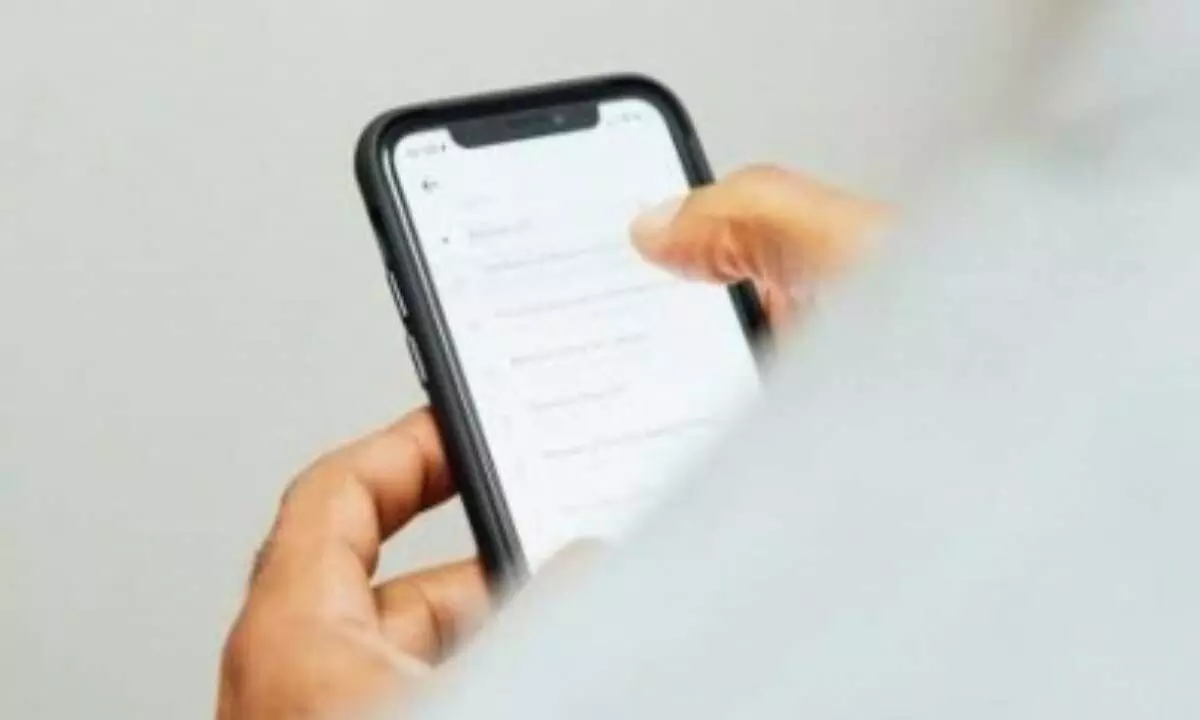Most Indians still store financial passwords in smartphones, finds report
About 17 per cent of Indians store important financial passwords (bank, ATM/ debit/credit card) in their smartphone contact list or mobile notes, a report said on Wednesday.
image for illustrative purpose

New Delhi, April 12 About 17 per cent of Indians store important financial passwords (bank, ATM/ debit/credit card) in their smartphone contact list or mobile notes, a report said on Wednesday.
While 30 per cent said they share important financial passwords with family members and staff, etc, 8 per cent said they store sensitive information in mobile phone notes while 9 per cent in the mobile contact list, according to the report by online community platform LocalCircles.
According to the report, 24 per cent of the respondents shared that mobile phones have been their preferred choice whether as notes, in the contact list, in password app or another place in the device.
Only 14 per cent stated that they "have them memorised" while 18 per cent have such details stored "on my computer/laptop" and 39 per cent have such important personal data stored in "another place/way".
A whopping 88 per cent of those surveyed said they have shared their Aadhaar card for various applications, proofs and bookings, etc.
"With databases that can be joined easily and reports indicating that AI can crack over 50 per cent passwords in under one minute, the average Indian is likely to be increasingly vulnerable," the findings showed.
The mobile notes are also not secure and do not have a password on them to secure them making users vulnerable.
Some people use easy-to-remember passwords, while others have one complex password for all their accounts.
"Neither option is recommended since it becomes easy for identity thieves and other criminals to steal your credentials," the report said.
Some service providers recommend using a password manager software that helps users create strong passwords, store them in a digital vault protected by a single master password, and then retrieve them as needed when logging into accounts.
This option may not be feasible or attractive for a large majority as it involves payment of monthly fees.

